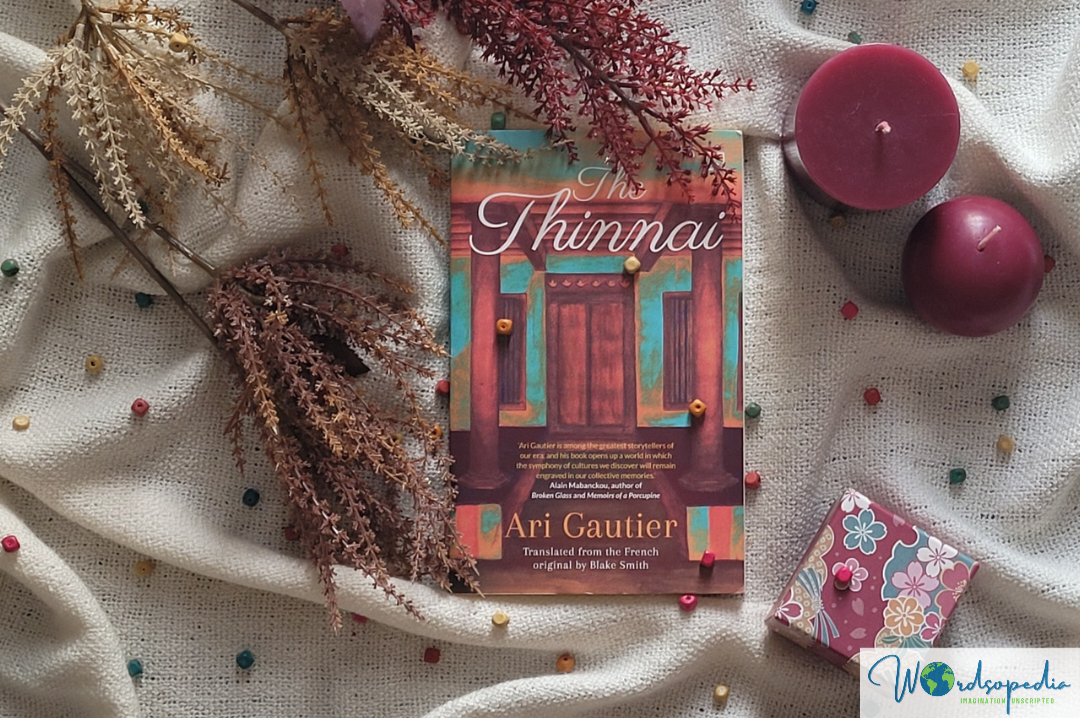The Thinnai was originally penned in French by Ari Gautier, but I delved into the English rendition skillfully translated by Blake Smith. This captivating tale unfolds in the charming fishing village of Kurusukuppam, not only offering a window into Pondicherry’s past and present but also whisking readers away on a journey spanning from a quaint village in northern France to the Maldives, various parts of coastal India, and even the Caribbean islands.
Kurusukuppam, once a French colony, is a veritable melting pot of cultures, nationalities, ideologies, religious practices, and beliefs, rendering it an intriguing locale.
The story commences with the narrator’s return to his childhood abode, where he finds solace in the Thinnai, an open space adorned with a raised platform and supporting pillars. Here, he embarks on a nostalgic odyssey, revisiting the days of his youth. The Thinnai emerges as the heart and soul of the narrative, far more than a mere backdrop.
The narrator’s father, Paulin, a French national, was once a staunch follower of Periyar. Interestingly, Paulin’s brother, an Indian citizen, is a communist who loathes Periyar. Lourdes, Paulin’s housemaid, is from the Low Creole community. While Paulin claims to believe in a casteless society, his practices do not reflect his beliefs. He discourages Lourdes from speaking in French with his sons as he feels she might spoil their vocabulary.
The villagers celebrate Bastille Day with great enthusiasm, despite not knowing its importance. French flags fly from rooftops and local liquor flows freely. It is on one such Bastille Day that a haggard old man, Gilbert Thaata, reaches the village. Paulin’s Thinnai becomes his home and a source of endless food, cigars, and good quality whisky. In return, he enthralls the residents with an unbelievable tale of Sita’s curse.
The writing exudes an old-world charm, characterized by great attention to visual imagery and detailing. The author masterfully highlights the disparities within this diverse community, weaving these differences into the narrative’s very fabric.
I was transported to the village and could visualise the homes, the residents, and their idiosyncratic quirks. Three-Balls-Six-Faces, Pascal Pig-Tail, Asamandi Baiyacca Sonal, Joseph One-and-a-Half -Eyes, Pattakka, and others delightfully populate the story with their intriguing lives and equally captivating names. The depiction of village life is a testament to the enchantment found in simplicity.
Throughout the narrative, various themes surface, including–colonialism, caste, religion, political ideologies, poverty, social disparity, and discrimination.
Apart from these themes, food plays a major role in the story. The mouth-watering cuisines are a gastronomical delight!
Readers unacquainted with Tamil vocabulary might not enjoy the subtleties of humor beneath the eccentricity. The translation works well and coveys the essence of the story, with the exception of the spelling of Tamil words. Most Tamil words are spelt with an ‘H’. e.g., grandfather is Thaatha and not Thaata. This and a few other references act as a disconnect. Non-Tamil readers would be minimally affected by this.
The Thinnai offers an enriching literary voyage, one that promises readers a nostalgic and thoroughly enjoyable experience.
Wordsopedia Rating 3.45/5
| Title: The Thinnai | Author: Ari Gautier |
| Publisher: Hachette India | Publication date: 31 August 2021 |
| Genre: Fiction—General | Format: Paperback |
| ISBN: 9789389253474 | No. of Pages: 200 |
Buy your copy here on Amazon
About the author
Born in Antananarivo in 1965, Ari Gautier is a French writer and poet of Indo-Malagasy origin.
Dedicated to giving Pondicherry its rightful place on the French literary map, Ari Gautier is committed to increasing Indian-francophone literature’s visibility in the world.
Carnet Secret de Lakshmi and The Thinnai are his two first works on the history of the city where he spent his childhood. His most recent publication is Nocturne Pondichéry, a collection of short stories on postcolonial Pondicherry.
He currently lives in Oslo.
Get in touch with the author on his website.
This post is part of Blogchatter’s Half Marathon

